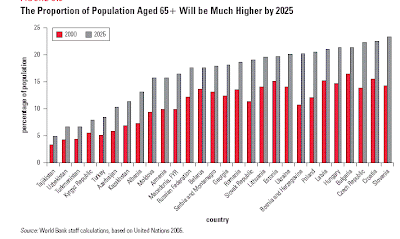Georgian women have a significant history of being politically active and engaged. In fact, more women than men died in the April 1989 massacre by Soviet forces in Tbilisi. During Georgia’s nationalist movement, and indeed through many of its transitions, issues of gender equality were viewed as peripheral, if not irrelevant. Tamar Sabedashvili, commissioned by the Heinrich Böll Foundation, took a retroactive look at Georgia’s democratic developments from 1991-2003 with an emphasis on the post-Rose Revolution period. She sought to explore how these transitions have affected women, if women have an increased presence in politics, or if a robust women’s movement has been spurred.
Much of Sabedashvili’s commentary is predictable. It is not shocking that Georgian women have not made large strides in representation in politics or increased wages and job opportunities. Georgia has de jure gender equality, which is convenient while on the books, but largely immaterial in practice. She articulates two major reasons for this stagnation, one being that women’s groups do not articulate their needs well, and a general lack of political will.
What was particularly interesting was Sabedashvili’s review of the actual wording in the Georgian Constitution, which is replete with institutionalized paternalism. Women are mentioned only twice in the Constitution, in the same class as minors, and contextualized by their roles as mothers and spouses. The Constitution confers responsibility on the state as guarantor of gender equality but the quality of legislation is sorely lacking, and legislation itself is not sufficient to uproot such deeply entrenched attitudes as on the competency of women in politics (a poll found that in general men were believed to be “better politicians” than women) and the traditionalist influence of the Church. The Constitution uses gender-neutral terminology such as “citizen,” “person,” and “individual,” as though it is unnecessary to differentiate citizens on the basis of sex; Sabedashvili reminds us that the “history of legal thought” regarded men as the subjects of law, so terminology should be changed to read “men and women” instead of just “persons.”
Georgian Constitutional Article 6, Paragraph 2 declares that international law – both treaty-based and customary- takes precedence over domestic normative acts. International law however needs first to be implemented in the form of domestic legislation. Georgia cannot complete its treaty obligations on gender equality without first implementing operational corresponding legislation- and then applying that legislation.
In exploring the problems associated with guaranteeing human rights, Sabedashvili referenced the “possession paradox,” the problem that arises when a person has the right to something without the corresponding right (and actual practice) to enforcement of said right.
Sabedashvili’s article brings up many interesting and varied questions on the relevance of Western feminist thought, cultural relativism, and gender equality in Georgia, which can be expanded to include many developing countries and the general international discourse. The influence of the Church in Georgia is immeasurable, and is a great contributing factor in conservative and paternalistic attitudes towards women in Georgia. The passage of October 2000’s
UN Security Council Resolution 1325 on women, peace and security put a female representative in the Georgia’s Office of the State Minister for Conflict Resolution but women as of yet not been invited to the formal conflict resolution process.
One of the key propositions Sabedashvili gives is for Georgian women’s groups to identify roadblocks and create strategies to cooperate with each other and better influence policymakers. International development organizations can consult and disseminate aid until there is none left to give, but without an authentic grassroots movement and a targeted Georgian approach to these problems, their actions and roles in Georgian society will be limited.
Sabedashvili's paper can be found
here.

